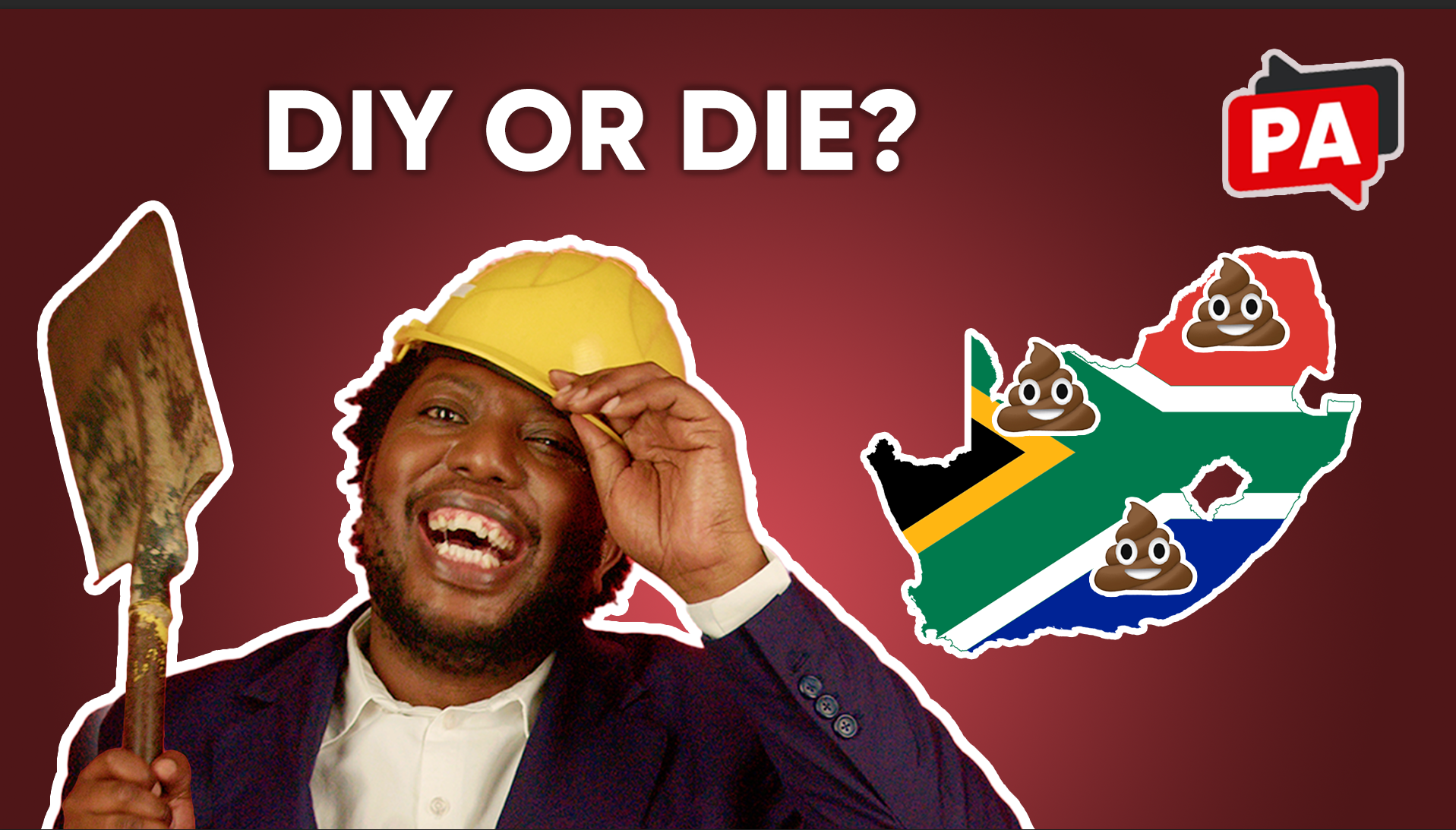Funnyman KG Mokgadi is taking a sho’t left into local municipality corruption this time on Politically Aweh, South Africa’s cheekiest online satirical news show, joined by Jan-Hendrik Willem Louis Joubert van der Westhuizentjie, aka the multitalented Keeno-Lee Hector, charming host of the “Kakkest Dorpie Van Die Jaar”.
They go on a road trip to the best of South Africa’s worst small towns, following the trail of unclean audits, ghost workers, imaginary infrastructure, giant potholes and piles of rubbish. Be prepared for a surprise intervention from the nation’s one-of-a-kind Sports, Arts and Culture Minister Gayton McKenzie (hilariously portrayed by KG Mokgadi).
https://www.youtube.com/watch?v=AaNL955S3F4
Without revealing the top three “Kakkest Dorpies”, we can promise that this year the standards are high, and competition was nail-bitingly tough for this prestigious accolade.
In one contender, 25% of residents have no access to piped water, 85% rely on pit toilets and 92% have to sort out their own rubbish disposal.
In another, a local university had to suspend teaching because of a lack of water. Tune in to find out all the ways corrupt officials have found to enrich themselves – because how else will they pay for a luxury 4x4 to handle those pesky potholes, right?
Looking at the headlines, it seems every corner of South Africa is experiencing water, sewerage and infrastructure problems. “Service delivery protests” are so common, they’ve become normalised. While there are many high-level issues with which to concern ourselves nationally and globally right now, ground zero of democracy and governance is at the local level. In theory, this is what the “high-level” stuff is ultimately for: our citizens and communities.
In reality, there is a huge disconnect.
Local government funds are treated as a personal feeding trough, resulting in a huge percentage of South Africans literally living in and around sewage, without water and other services. The unsavoury topic of where our sh*t goes and how this is managed tells you everything you need to know about a place, and how much the local government cares about those they serve.
Billions of rands that should have gone to building better towns have been lost to the “cancer” of corruption, as former chair of Parliament’s Standing Committee on Public Accounts Themba Godi puts it. In fact, he goes further, saying the rot is like a horror movie:
“I’ve seen all the gory figures… the Auditor-General only takes a sample, so whatever horror figures that the Auditor-General gave us were just a sample out of a big pot. So we indeed bled, we were bled dry and we continue to be bled dry,” Godi says.
According to the Auditor-General, little to no consequences over 30 years resulted in many municipalities still grappling with the basics.
However, with the Public Audit Amendment Act of 2018 (PAAA) coming into operation in April 2019, along with the Material Irregularity Regulations and Investigations and Special Audits Regulations, the tide is starting to turn. By November 2023, Auditor-General Tsakani Maluleke reported a noticeable impact on public sector accountability resulting from PAAA enforcement. “We found that issuing a material irregularity (MI) notification to accounting officers often jolts them into action… In 86% of cases, nothing was being done to address the MIs we identified until we issued the notifications.”
In some places, citizens have become so desperate that they have ended up taking on the work of municipalities themselves, even funding projects that should have been paid for with stolen funds.
In the Eastern Cape, for example, an organisation called Makana Revive has been fixing potholes, and in many places, it is private citizens who have been cleaning the vast amounts of waste and pollution from rivers.
According to Mbali Ntuli from the Ground Work Collective, another powerful way to create change is to learn about and get involved with local government and do some DIY there.
“Because we have such a participatory democracy, if anyone is interested, particularly when it comes to local government elections, you have a say in what happens in your very street, in your IDP (Independent Development Plan) processes, the budgeting process in your municipality, all these are by design and by law meant to come up to public participation.”
South Africans have amazing community spirit and inspiration can be found everywhere – even in the “kakkest” dorpies. It’s up to us to ensure local governments are doing their job, and if necessary, as Comrade KG puts it, “DIY that sh*t, baby!” DM
Multimedia
Ranking SA’s Worst Towns — Kakkest Dorp Van Die Jaar 2024





